Le Coq Sportif
Le Coq Sportif (French pronunciation: [lə kɔk spɔʁtif], "the athletic rooster") is a French manufacturing company of sports equipment. Founded in 1882 by Émile Camuset and located in Entzheim,[3] the company first issued items branded with its now-famous rooster trademark in 1948.[4] The company's name and trademark are derived from the Gallic rooster, a national symbol of France.
 | |
| Type | Subsidiary |
|---|---|
| Industry | Textile Sports equipment |
| Founded | 1882 |
| Founder | Émile Camuset |
| Headquarters | , |
| Products | Sportswear, clothing, footwear |
| Revenue | |
| Parent | Airesis S.A.[2] |
| Website | lecoqsportif.com |
In present days, Le Coq Sportif is a subsidiary of "Airesis S.A.", a Switzerland-based investment company that holds a 69%-stake of LCS.[5][6] Current range of products by Le Coq Sportif includes sportswear, casual clothing, and footwear.
History
The company was established by Émile Camuset in 1882, initially within the woolen industry and then entering into the sportswear business, with some versions stating that it was his son who encouraged him to do it.[7]
The Camuset family started manufacturing sports clothing in their factory in Romilly-sur-Seine in north central France, releasing its first catalog (which mostly included cycling jerseys) in 1929.[8] Ten years later, the company launched the first tracksuit ever, the chándal (also known as "the Sunday clothing").[8][9]
Le Coq Sportif reached its peak in the 1950s, with its first huge success in 1951 when the brand signed a deal to make the yellow jersey for the Tour de France. That jersey had been introduced in 1919 but rejected by riders who didn't want to be so visible to rivals. Nevertheless, when Louison Bobet achieved three consecutive wins in 1953–1955, the company gained notability as Bobet's jersey supplier.[7][10] During those years, LCS also signed agreements to be the official uniform provider for the French national football (from 1955)[9] and rugby teams. The company also signed an agreement with the French Olympic Committee so athletes wore LCS sportswear at the 1960 Summer Olympics at Rome.[9]
The company redesigned its logo (the triangular shape with the roster inside), then putting it onto the yellow jersey for the first time in 1966, being one of the first sports manufacturer to make its logo visible. Le Coq Sportif was also a pioneer in the textile industry so other notable sports brands (such as Adidas and Puma) focused on development and marketing of footwear. By 1966 Le Coq Sportif was the biggest sports brand in France and that same year the company signed a deal with Adidas to produce the three stripes clothing products in France. Terms of the contract ruled that Adidas focused on footwear while LCS took over of textile products.[7]

In the early 1970s, Adidas, dissociated with its share in the market, began to sell textile products, realising that the Camuset family had registered the three stripes symbol in France. That led to a legal battle between two companies that almost caused the demise of LCS. As Adidas lost the lawsuit, stroke back against the French company with the objective to push it out of the business. Adidas signed a sponsorship agreement with Eddy Merckx, the raising star of cycling. That quick move and some bad decisions by the Camuset family made LCS lost a substantial piece of the market, and Adidas offered them to buy the company, regaining ownership of the three stripes in France as part of the deal. The offer was declined by Mirielle Camuset –Emile's daughter– more based on her political thoughts (as she had been a member of the French resistance against Germany during the World War II) than a commercial point of view. Nevertheless, the French government, being aware of LCS critical situation, appointed entrepreneur André Guelfi to take over the company and save it.[7]

Guelfi meet Horst Dassler (who was in charge of Adidas by then) and they secretly agreed to Adidas would buy a controlling stake in LCS. In return, Dassler would give help and assistance to make LCS a big company again. In the 1980s, Adidas' support allowed LCS reaching new audiences when tennis player Yannick Noah won the French Open in 1983, wearing Le Coq Sportif apparel. The rooster logo also appeared on the jerseys of Peugeot and Renault teams, and cyclist Bernard Hinault. The collaboration between both companies was mostly notable on Hinault's win at the World Championship, where he wore LCS jersey and Adidas shoes.[7]
Nevertheless, the passing of Dassler in 1987 put both companies in a critical situation. After being taken over by French entrepreneur Bernard Tapie (then involved in a match-fixing scandal in French football), Le Coq Sportif was sold to US company Brown Shoe, with Japanese firm Descente also taking rights over LCS to develop a golf line. By 1999 the company didn't have a single cyclist in its range of sponsored athletes. The company was taken over by another entrepreneur, Oliver Jacques, who would be then imprisoned under the charges of counterfeit Adidas and Nike products.[7]
After a long time of financial troubles and scandals, the company was relaunched in 2005 by Robert Louis-Dreyfus, through a Swiss investment company, Airesis. It was relocated on its original home in 2010, refurbishing the original factory in Romilly-sur-Seine, with production now centralised in France. LCS returned to sponsor cycling teams. In 2012, the company restarted its partnership with the Tour de France.[10]
Sponsorships
History

The company has sponsorship deals with several football clubs, most notably European clubs Saint-Étienne and Fiorentina. In addition, the company sponsors the Quick Step-Innergetic and Team Milram cycling teams. Le Coq Sportif also supplied kits to the Tottenham Hotspur team that won the FA Cup in 1981 and 1982,[11] Aston Villa 1982 team that won the European Cup,[12] Chelsea (1981-1986),[13] Sunderland (1981-1983),[14] Sheffield United (1997-2000 and 2002-2009)[15] and Everton (1983-1986 and 2009-2012)[16] and AFC Ajax of Amsterdam[17] (1/1973-6/1977 and 7/1980-12/1984); the FIFA World Cup winning teams of Italy in 1982 and Argentina in 1986. The company also sponsored Brazilian club Sport Club Internacional in 1982. The club won the traditional Joan Gamper Trophy at the Camp Nou in Barcelona while using Le Coq uniforms. Internacional also won the 1982 Gaúcho Championship wearing Le Coq. Fluminense Football Club is another Brazilian powerhouse that dressed Le Coq Sportif's kits in the 80s and won the National League title in 1984 as well as a Campeonato Carioca threepeat in 1983, 1984 and 1985.
In other sports, tennis player Arthur Ashe wore Le Coq Sportif when winning the 1975 Wimbledon Championship.[8] The company then launched a sneakers line, the Arthur Ashe shoe.[18] Belgian Justine Henin also wore LCS when she played the 2001 Wimbledon final.[8] South Korean golfer Yang Yong-eun wore a Le Coq Sportif shirt on the last day of the PGA Championship in 2009, which he won.[19]
Le Coq Sportif hired local designers in Japan and Korea to complete and adapt the global collection for local market. They also signed some partnerships to release special models. Le Coq Sportif in Japan associated with Sou to create handmade shoes and tabi. They also released a line of shoes with designer Kamishima Chinami.[20] For Le Coq Sportif Korea, the partnership was made with the car manufacturer Peugeot to create a shoe named the "Peugeot 207cc." The shoes were recalled in 2009 for a product fault, when the fabric was exposed to water the shoe's stitching would come apart. This in turn lost Le Coq Sportif millions in revenue. In 2012, Le Coq Sportif returned to professional cycling, and manufactured the jerseys for the Tour de France under a new five-year contract with Amaury Sport Organisation.
Current
Le Coq Sportif is the official uniform supplier of the following teams/players:
Boxing
Cycling
Formula One
Tennis
Football
- National teams
- Clubs teams
 Gimnasia y Esgrima (LP)
Gimnasia y Esgrima (LP).svg.png.webp) Union SG
Union SG Atlético Mineiro
Atlético Mineiro Saint-Étienne
Saint-Étienne ESTAC Troyes
ESTAC Troyes Casarano (since 2020-201 season).
Casarano (since 2020-201 season). AS Velasca (it)
AS Velasca (it) FC Seoul
FC Seoul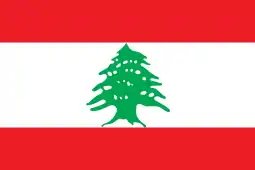 Homenmen Beirut
Homenmen Beirut Soweto Stars FC
Soweto Stars FC Stellenbosch FC
Stellenbosch FC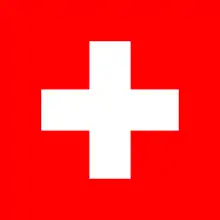 Lausanne
Lausanne
Former sponsorships
National teams
Former club teams
 Belgrano (C) (1996–2000)
Belgrano (C) (1996–2000) Gimnasia y Esgrima (J) (1997–98)
Gimnasia y Esgrima (J) (1997–98) Independiente (1986–88)
Independiente (1986–88) Kimberley (MDP)
Kimberley (MDP) Lanús (2001–03)
Lanús (2001–03) Rosario Central (1995–98)
Rosario Central (1995–98) Ramón Santamarina (2011–13)
Ramón Santamarina (2011–13) Tigre (1997–2002)
Tigre (1997–2002) Internacional (1982)
Internacional (1982) Fluminense (1981–85)
Fluminense (1981–85) São Paulo (1981–84) [22]
São Paulo (1981–84) [22] Atlético Mineiro (2019–) [23]
Atlético Mineiro (2019–) [23] Aston Villa (1981–83)[12]
Aston Villa (1981–83)[12] Barnet (1980–82) [24]
Barnet (1980–82) [24] Birmingham City (1998–2004)[25]
Birmingham City (1998–2004)[25] Bristol Rovers (1995–96) [26]
Bristol Rovers (1995–96) [26] Bury (1995–97)[27]
Bury (1995–97)[27] Carlisle United (2005–11)
Carlisle United (2005–11) Charlton Athletic (1998–2003)[28]
Charlton Athletic (1998–2003)[28] Chelsea (1981–86)[13]
Chelsea (1981–86)[13] Chester City (1995–97)[29]
Chester City (1995–97)[29] Coventry City (1996–99)[30]
Coventry City (1996–99)[30] Crystal Palace (2001–03)[31]
Crystal Palace (2001–03)[31] Darlington (1979–1984)[32]
Darlington (1979–1984)[32] Derby County (1978–82)[33]
Derby County (1978–82)[33] Everton (1983–86; 2009–12)[16]
Everton (1983–86; 2009–12)[16] Fleetwood Town (2006–07)[34]
Fleetwood Town (2006–07)[34] Kidderminster Harriers (1984–86; 2001–04)[35]
Kidderminster Harriers (1984–86; 2001–04)[35] Leicester City(2000–05)[36]
Leicester City(2000–05)[36] Manchester City(1999–2003; 2007–09)[37]
Manchester City(1999–2003; 2007–09)[37] Oldham Athletic (1983–85)[38]
Oldham Athletic (1983–85)[38] Queens Park Rangers (1997–2008)[39]
Queens Park Rangers (1997–2008)[39] Rotherham United (1995–98)[40]
Rotherham United (1995–98)[40] Scarborough (1996–97)[41]
Scarborough (1996–97)[41] Sheffield United (1997–2000; 2002–09)[15]
Sheffield United (1997–2000; 2002–09)[15] Stoke City (2007–10)[42]
Stoke City (2007–10)[42] Sunderland (1981–83)[14]
Sunderland (1981–83)[14] Torquay United (1995–97)[43]
Torquay United (1995–97)[43] Tottenham Hotspur (1980–85)[11]
Tottenham Hotspur (1980–85)[11] Tranmere Rovers (1982–83)[44]
Tranmere Rovers (1982–83)[44] Wolverhampton Wanderers (2004–10)[45]
Wolverhampton Wanderers (2004–10)[45] York City (1982–83)[46]
York City (1982–83)[46] Paris Saint-Germain (1970–86)
Paris Saint-Germain (1970–86) Cork City (1999–2003)[47][48]
Cork City (1999–2003)[47][48] Ancona (2003–04)
Ancona (2003–04) Inter Milan (1986–88)
Inter Milan (1986–88) Udinese (2002–05)
Udinese (2002–05)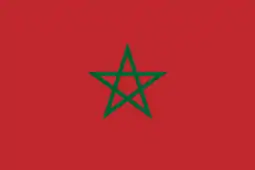 Moghreb Tetouan
Moghreb Tetouan Ajax (1973–77; 1980–84)[17]
Ajax (1973–77; 1980–84)[17]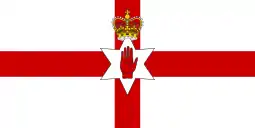 Glentoran (1996–99)[49][50]
Glentoran (1996–99)[49][50].svg.png.webp) Cerro Porteño (1984–87)
Cerro Porteño (1984–87) Sporting Lisboa (1980–86)
Sporting Lisboa (1980–86) Vitória de Guimarães (1983–89)
Vitória de Guimarães (1983–89)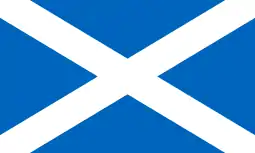 Aberdeen (2001–04)[51]
Aberdeen (2001–04)[51] Dunfermline Athletic (1996–97)[52]
Dunfermline Athletic (1996–97)[52] East Stirlingshire (1998–2000)[53]
East Stirlingshire (1998–2000)[53] Falkirk (1996–99)[54]
Falkirk (1996–99)[54] Kilmarnock (1995–98)[55]
Kilmarnock (1995–98)[55] Hamilton Academical (1995–97)[56]
Hamilton Academical (1995–97)[56] Hibernian (1998–2010)[57]
Hibernian (1998–2010)[57] Inverness Caledonian Thistle (1996–99)[58]
Inverness Caledonian Thistle (1996–99)[58] Incheon United (2012–14)
Incheon United (2012–14) Ulsan Hyundai (2010–11)
Ulsan Hyundai (2010–11) Denizlispor (2004–06)
Denizlispor (2004–06)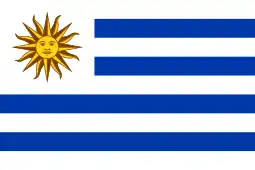 Peñarol (1984–87)
Peñarol (1984–87).svg.png.webp) Swansea City (1995–97)[59]
Swansea City (1995–97)[59]
Rugby union
 Racing 92
Racing 92 France (from July 2018)[60]
France (from July 2018)[60] Petrarca Rugby (2018–19)
Petrarca Rugby (2018–19)
References
- "Rapport de gestion/Annual Report 2016" (PDF). Airesis SA.
- Airesis S.A. profile
- "superfiction.net/blog". superfiction.net. Archived from the original on 24 July 2011. Retrieved 16 April 2018.
- Vogue Australia Archived 2007-09-04 at the Wayback Machine
- Airesis SA: shareholders on Market Screener
- "Le Coq Sportif". Airesis.
- Return of the roster by Werner Pfister on Soigneur website, 7 Dec 2015
- Historia on LCS website
- La historia del gallo by Dani Antón on La Jugada Vintage, 19 Jan 2016
- Le Coq Sportif by Nick Chapman on Bikevibe
- Moor, Dave. "Tottenham Hotspur". historicalkits.co.uk. Historical Football Kits. Retrieved 24 July 2016.
- Moor, Dave. "Aston Villa". historicalkits.co.uk. Historical Football Kits. Retrieved 24 July 2016.
- Moor, Dave. "Chelsea". historicalkits.co.uk. Historical Football Kits. Retrieved 24 July 2016.
- Moor, Dave. "Sunderland". historicalkits.co.uk. Historical Football Kits. Retrieved 24 July 2016.
- Moor, Dave. "Sheffield United". historicalkits.co.uk. Historical Football Kits. Retrieved 24 July 2016.
- Moor, Dave. "Everton". historicalkits.co.uk. Historical Football Kits. Retrieved 24 July 2016.
- "AFC Ajax en alles eromheen" [AFC Ajax and everything around it]. ajaxcafe.nl (in Dutch). Archived from the original on 27 January 2015. Retrieved 24 July 2016.
- Arthur Ashe men shoes on LCS
- A sponsorear se ha dicho by Quino Oneto Gaona on Infobae, 2 Feb 2014
- Nostalgic but bold Kimono-inspired clothing by Karen Jensen on Pieces of Japn, 18 Jun 2019
- Rédaction. "Gasquet avec le Coq Sportif". lequipe.fr. Retrieved 16 April 2018.
- SÃO PAULO FUTEBOL CLUBE
- Atlético e Le Coq Sportif lançam Coleção 2019
- Moor, Dave. "Barnet". historicalkits.co.uk. Historical Football Kits. Retrieved 19 October 2016.
- Moor, Dave. "Birmingham City". historicalkits.co.uk. Historical Football Kits. Retrieved 24 July 2016.
- Moor, Dave. "Bristol Rovers". historicalkits.co.uk. Historical Football Kits. Retrieved 31 July 2018.
- Moor, Dave. "Bury". historicalkits.co.uk. Historical Football Kits. Retrieved 19 October 2016.
- Moor, Dave. "Charlton Athletic". historicalkits.co.uk. Historical Football Kits. Retrieved 24 July 2016.
- Moor, Dave. "Chester City". historicalkits.co.uk. Historical Football Kits. Retrieved 31 July 2018.
- Moor, Dave. "Coventry City". historicalkits.co.uk. Historical Football Kits. Retrieved 24 July 2016.
- Moor, Dave. "Darlington". historicalkits.co.uk. Historical Football Kits. Retrieved 12 May 2020.
- Moor, Dave. "Darlington". historicalkits.co.uk. Historical Football Kits. Retrieved 31 July 2018.
- Moor, Dave. "Derby County". historicalkits.co.uk. Historical Football Kits. Retrieved 24 July 2016.
- Moor, Dave. "Fleetwood Town". historicalkits.co.uk. Historical Football Kits. Retrieved 10 November 2017.
- Moor, Dave. "Kidderminster Harriers". historicalkits.co.uk. Historical Football Kits. Retrieved 31 July 2018.
- Moor, Dave. "Leicester City". historicalkits.co.uk. Historical Football Kits. Retrieved 24 July 2016.
- Moor, Dave. "Manchester City". historicalkits.co.uk. Historical Football Kits. Retrieved 24 July 2016.
- Moor, Dave. "Oldham Athletic". historicalkits.co.uk. Historical Football Kits. Retrieved 31 July 2018.
- Moor, Dave. "Queens Park Rangers". historicalkits.co.uk. Historical Football Kits. Retrieved 24 July 2016.
- Moor, Dave. "Rotherham United". historicalkits.co.uk. Historical Football Kits. Retrieved 20 August 2016.
- Moor, Dave. "Scarborough". historicalkits.co.uk. Historical Football Kits. Retrieved 10 November 2017.
- Moor, Dave. "Stoke City". historicalkits.co.uk. Historical Football Kits. Retrieved 24 July 2016.
- Moor, Dave. "Torquay United". historicalkits.co.uk. Historical Football Kits. Retrieved 31 July 2018.
- Moor, Dave. "Tranmere Rovers". historicalkits.co.uk. Historical Football Kits. Retrieved 31 July 2018.
- Moor, Dave. "Wolverhampton Wanderers". historicalkits.co.uk. Historical Football Kits. Retrieved 20 August 2016.
- Moor, Dave. "York City". historicalkits.co.uk. Historical Football Kits. Retrieved 10 November 2017.
- "1999-2000". playingfortheshirt.net. Retrieved 19 October 2016.
- "2004". playingfortheshirt.net. Retrieved 19 October 2016.
- "1996". playingfortheshirt.net. Retrieved 7 October 2016.
- "1998/1999". playingfortheshirt.net. Retrieved 7 October 2016.
- Moor, Dave. "Aberdeen". historicalkits.co.uk. Historical Football Kits. Retrieved 24 July 2016.
- Moor, Dave. "Dunfermline Athletic". historicalkits.co.uk. Historical Football Kits. Retrieved 31 July 2018.
- Moor, Dave. "East Stirlingshire". historicalkits.co.uk. Historical Football Kits. Retrieved 31 July 2018.
- Moor, Dave. "Falkirk". historicalkits.co.uk. Historical Football Kits. Retrieved 31 July 2018.
- Moor, Dave. "East Fife". historicalkits.co.uk. Historical Football Kits. Retrieved 24 July 2016.
- Moor, Dave. "Hamilton Academical". historicalkits.co.uk. Historical Football Kits. Retrieved 10 November 2017.
- Moor, Dave. "Hibernian". historicalkits.co.uk. Historical Football Kits. Retrieved 24 July 2016.
- Moor, Dave. "Inverness Caledonian Thistle". historicalkits.co.uk. Historical Football Kits. Retrieved 10 November 2017.
- Moor, Dave. "Swansea City". historicalkits.co.uk. Historical Football Kits. Retrieved 20 August 2016.
- "Le Coq Sportif nouvel équipementier du XV de France à partir de 2018". sport24.lefigaro.fr. Retrieved 6 June 2017.